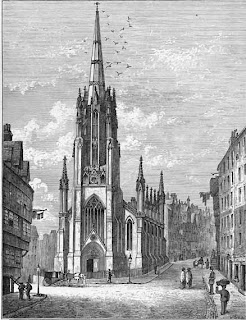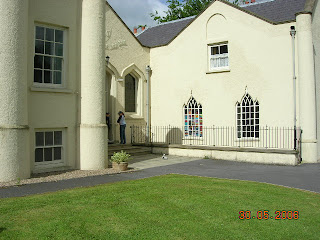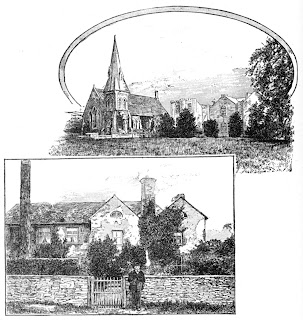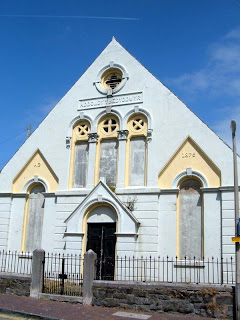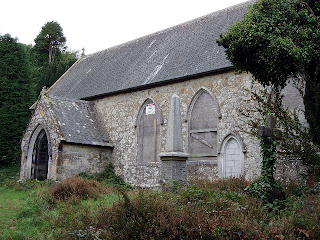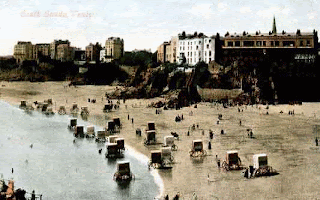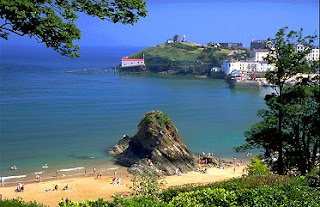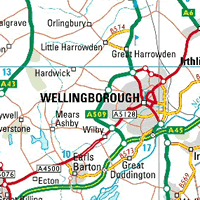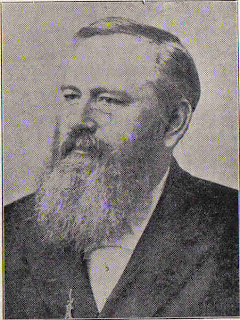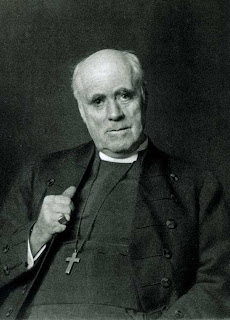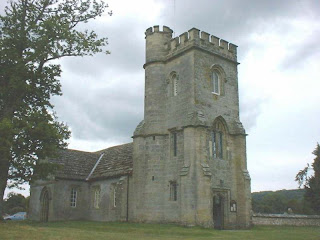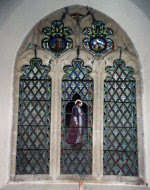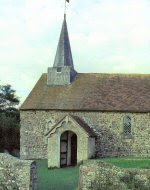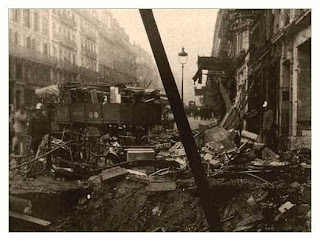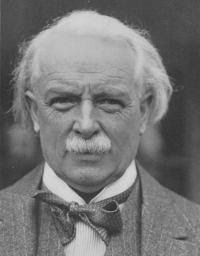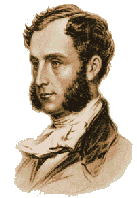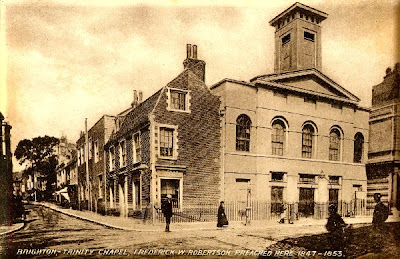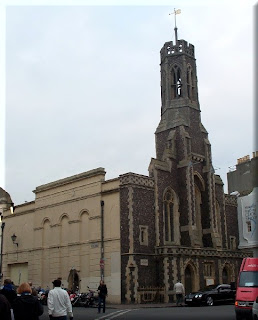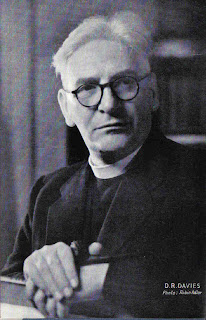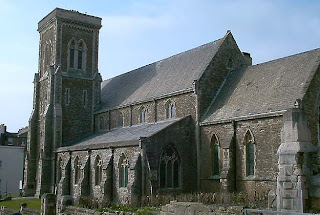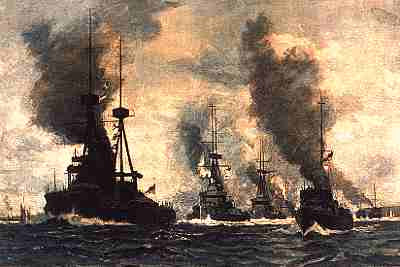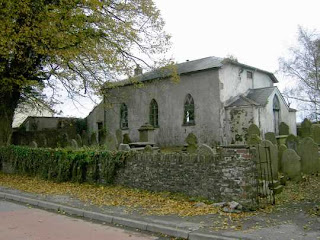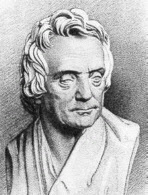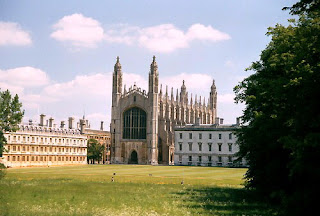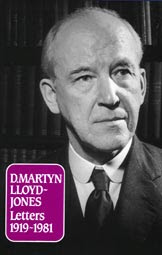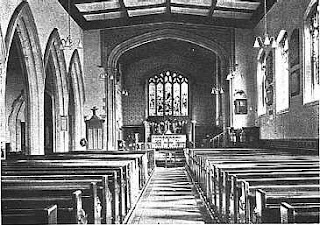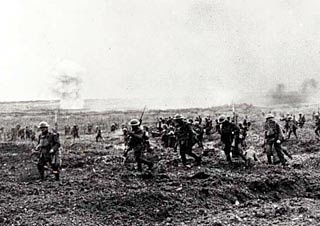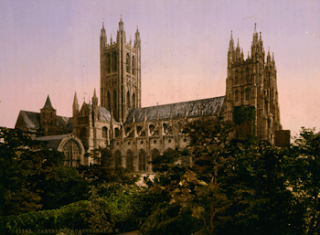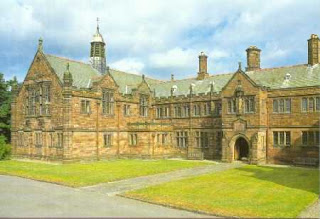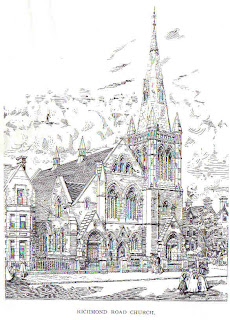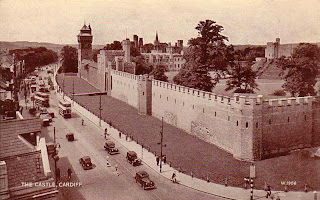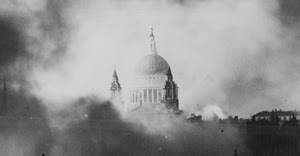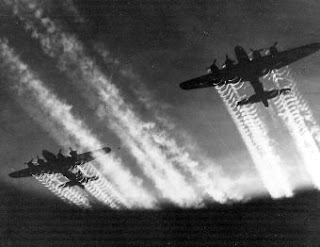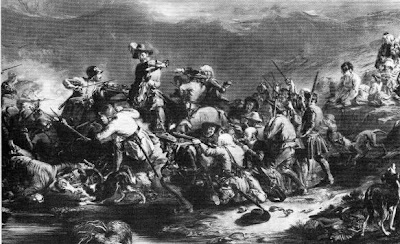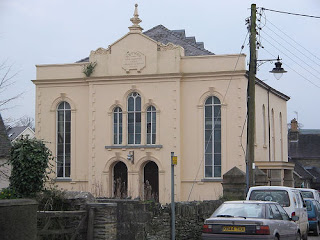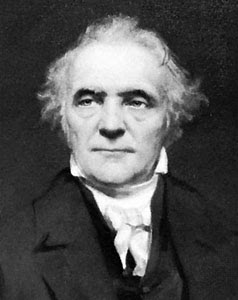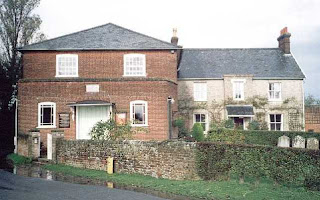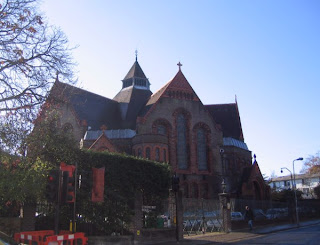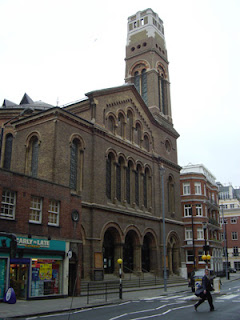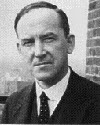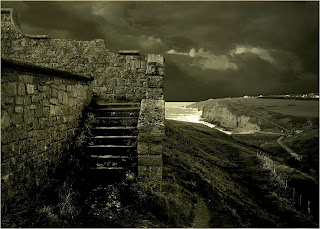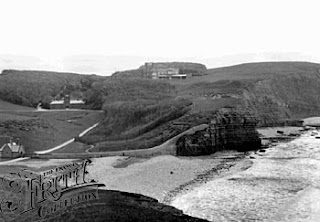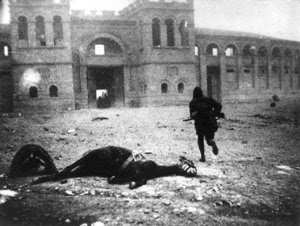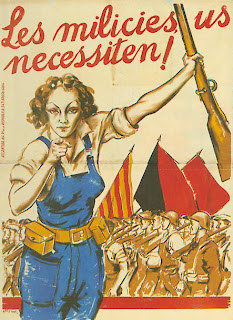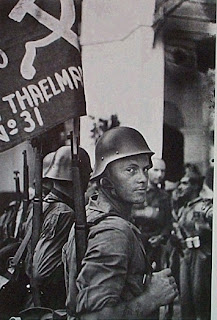John Pugh IV: By Tredegar Clock
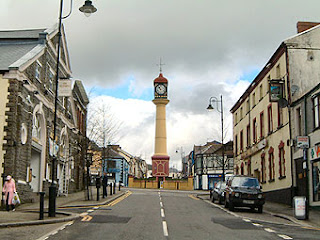 John Pugh could have taken a prestigious Welsh-language chapel in the Calvinistic Methodist heartland and salved his conscience by occasional preaching elsewhere. But that was not his way, instead, he accepted a call to Tredegar.
John Pugh could have taken a prestigious Welsh-language chapel in the Calvinistic Methodist heartland and salved his conscience by occasional preaching elsewhere. But that was not his way, instead, he accepted a call to Tredegar.The church he became pastor of had started in 1867 with a membership of eight. By the time they called Pugh in 1872, the church membership had doubled to 16, and the church had a temporary corrugated iron building, which was half-filled on Sundays. The membership were resting in their salvation, but that was not enough for Pugh.
Almost at once, Pugh decided that there was only one way to reach the teeming masses of Tredegar, and that was to preach in the open air. On the last Sunday evening in July, Pugh announced that the coming Tuesday, he would preach at the town clock at seven o'clock.
At seven o'clock, Pugh stood on the steps of the clock, hymn-book and bible in his hands, like the twin guns of the Western marshall. None of his congregation turned up to support him. At last, six women joined him. They prayed for a long time, before Pugh sang a hymn:
The greatest opposition arose not from the workers Pugh sought to reach, but from within the denomination. He was opposed as a 'ranter' and accused of 'casting pearls before swine' in preaching to the common people of Tredegar. But in these men and women, Pugh saw not 'swine,' but 'the sheep for whom the shepherd died.'
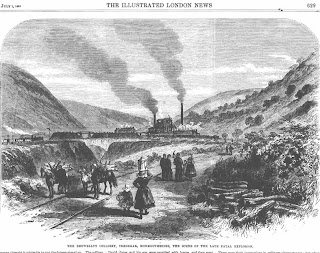 But Pugh's contacts from his Trefecca days came to his aid. One Sunday, Principal Howells and Edward Matthews, Ewenni, visiting Pugh, insisted that he preach from the clock. Pugh agreed, albeit reluctantly. An immense crowd assembled, and as Pugh preached, the Holy Spirit came down. The crowd was transfixed, and the two preachers baptised by the Spirit. The critical elders who had been there with them, were also transformed.
But Pugh's contacts from his Trefecca days came to his aid. One Sunday, Principal Howells and Edward Matthews, Ewenni, visiting Pugh, insisted that he preach from the clock. Pugh agreed, albeit reluctantly. An immense crowd assembled, and as Pugh preached, the Holy Spirit came down. The crowd was transfixed, and the two preachers baptised by the Spirit. The critical elders who had been there with them, were also transformed.The congregation of the tin church increased so greatly that the church was forced to meet in the larger Temperance Hall. A new building, seating 700 was erected, John Pugh's father providing the labour. Pugh had been pastor in Tredegar for less than four years.
It was while Pugh was at Tredegar that he met Mary Watkins, the daughter of a prosperous farmer. Although her parents were initially opposed to the match, love prevailed, and Mary Watkins, 25, was married to the Rev. John Pugh, 29, at Zion Street Baptist Chapel, Abergavenny on April 25th, 1875.
Blessed with a loving wife and a growing congregation, Pugh might have been forgiven for decidingto rest on his laurels. But that was not the way of the man. In 1881, Pugh accepted a call from the English-language church in Pontypridd.
Labels: John Pugh
